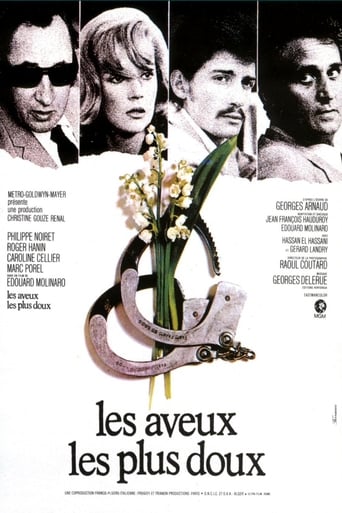Following a robbery in a circus, a young mobster, Jean, is arrested by Inspector Borelli. The thug denies involvement. To compel him to sign a full confession, Inspector Muller encourages the suspect to get married for - he says - to move the jury. This being done, he lets Jean believe that he can spend a moment alone with his wife; but then, Inspector Borelli blackmails him: "If you sign your confession, you can spend a moment with her." After being beaten, Jean signs a confession. It is then that a new blackmail intervenes: "the name of the accomplice?", asks the inspector. But the thug refuses to denounce the latter and ends up refusing the bargain dupes. While the guards drive him back to prison, his wife cuts his veins, breaking the career of the bad policeman.
*Si nuestra moderación aprueba tu versión, será reemplazada y serás acreditado como autor del texto.
Año1971
Duración95 minuto
GénerosCrimenDrama
Países de producciónAlgeriaFranceItaly
